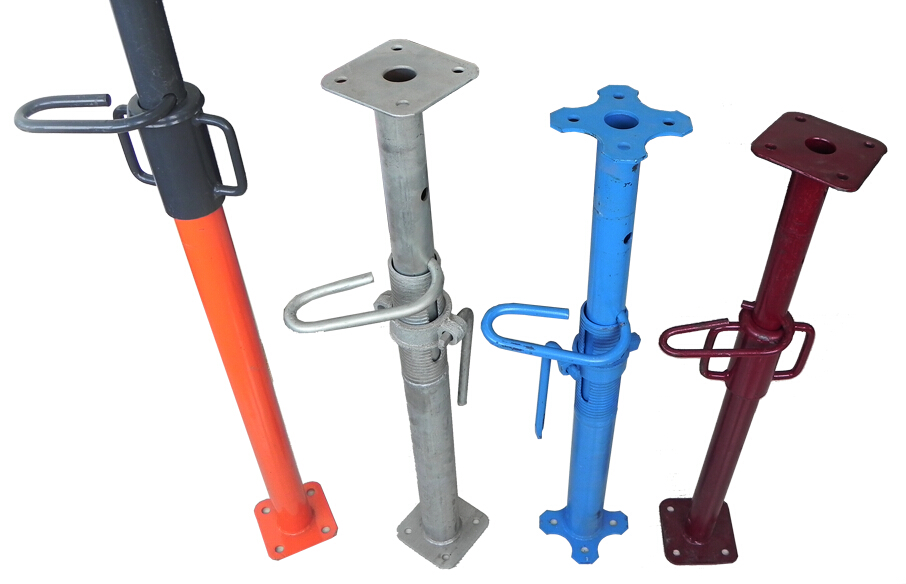Sep . 23, 2024 11:09 Back to list
Wooden Formwork Solutions for Effective Slab Construction Projects
The Importance of Wooden Formwork for Slab Construction
In the ever-evolving field of construction, the materials and methodologies used can significantly influence the outcomes of any project. One of the foundational elements of constructing concrete slabs is formwork, and among the various types available, wooden formwork stands out for its versatility and effectiveness. This article explores the benefits, applications, and considerations associated with wooden formwork in slab construction, illustrating why it remains a preferred choice for many contractors.
Understanding Wooden Formwork
Wooden formwork is essentially a mold made of timber that holds the wet concrete in place until it cures and gains sufficient strength. It can be custom-built for various slab shapes and sizes, making it highly adaptable for unique project specifications. Although other materials such as metal or plastic are also used for formwork, wooden formwork is particularly favored for its balance of cost, ease of use, and reliability.
Advantages of Wooden Formwork
1. Cost-Effectiveness One of the primary reasons many construction companies opt for wooden formwork is its cost efficiency. Timber is often more affordable compared to metal options, especially for small to medium-sized projects. When properly maintained, wooden formwork can be reused multiple times, further reducing overall costs.
2. Ease of Construction Wooden formwork is relatively easy to work with. It can be cut, shaped, and assembled on-site, allowing for quicker adjustments to meet specific design requirements. This flexibility means that teams can respond rapidly to changes, thereby minimizing downtime.
3. Outstanding Finish Quality Wooden formwork can provide an excellent finish for concrete slabs, especially when smooth timber is used. The surface quality of the finished product is crucial, particularly in applications where aesthetics matter, such as in residential buildings or architectural showcases.
4. Lightweight Wood's natural properties make wooden formwork lighter than many alternatives. This characteristic simplifies the handling and installation process, reducing labor costs, and enhancing safety on-site as workers can maneuver the formwork more easily.
5. Sustainability As the construction industry increasingly focuses on sustainable practices, wooden formwork can represent an environmentally friendly option, especially when sourced from responsibly managed forests. Its versatility and low environmental impact make it a popular choice among eco-conscious builders.
wooden formwork for slab company

Applications in Slab Construction
Wooden formwork is suitable for various slab types, including
- Flat Slabs In flat slab constructions where beams are not required, wooden formwork can easily create a flat level surface that provides the necessary support during the curing process. - Hollow Core Slabs For prefabricated structures, wooden formwork can be used to create the hollows in concrete slabs, resulting in lighter structures without compromising strength.
- Cantilever Slabs Wooden formwork is beneficial in forming cantilevered sections as it can be tailored to support the unique weight distribution of these designs.
Each of these applications underscores the versatility of wooden formwork in meeting diverse engineering and architectural requirements.
Considerations When Using Wooden Formwork
While wooden formwork has many benefits, there are considerations and best practices to keep in mind. Proper sealing of the timber may be necessary to prevent moisture absorption and surface defects in the concrete. Additionally, choosing high-quality, seasoned wood minimizes the risk of warping or degradation during the curing process.
Another important aspect is the handling and storage of the formwork to ensure longevity and usability. Contractors should be accustomed to maintaining the wooden formwork regularly to maintain its structural integrity and ensure safety on-site.
Conclusion
In conclusion, wooden formwork remains a key component of slab construction, providing a blend of affordability, flexibility, and quality. Its benefits, such as cost-effectiveness, ease of use, and the superior finish it can provide, ensure that wooden formwork will continue to be a staple in the construction industry. As construction techniques evolve, the enduring reliability of wooden formwork will undoubtedly cement its position as a go-to option for contractors looking to achieve excellent results in their slab projects. Whether for residential, commercial, or industrial construction, investing in high-quality wooden formwork is a decision that pays dividends in terms of efficiency, quality, and sustainability.
-
High-Quality U Head Jack Scaffolding – Reliable Scaffolding Jack Head Manufacturer & Factory
NewsJul.08,2025
-
High-Quality I Beam H20 Leading Timber Beam H20 Material Factory, Exporters & Manufacturers
NewsJul.08,2025
-
High-Quality Powder Coating Steel Formwork - Durable & Corrosion Resistant Solutions
NewsJul.07,2025
-
Inclined Column Formwork Supplier – Durable & Precise Solutions for Unique Structures
NewsJul.07,2025
-
High-Quality Water Stop Solutions Trusted Water Stop Company & Suppliers
NewsJul.07,2025
-
High-Quality Formwork Material Supplier Reliable Manufacturer & Factory Solutions
NewsJul.06,2025